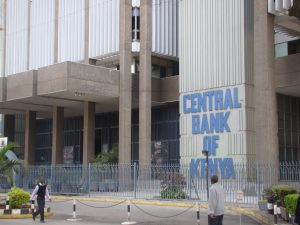According to reports, manufacturing companies in Kenya are putting pressure on the Central Bank of Kenya (CBK) to release United States Dollars into the Kenyan market in order to reduce and or put a stop to the consistent shortages which have led to many importers placing advance orders.

The Kenya Association of Manufacturers (KAM) has stated that the Central Bank of Kenya (CBK) should provide the excess United States Dollars above the ordered levels of the equivalent of (4) months worth of import coverage into the Kenyan market.
The Kenya Association of Manufacturers (KAM) made it known that, “We call upon the central bank to release dollars for importers to access to pay specific bills.”
It added that, “The Central Bank has over five months of import cover as a reserve, and this can help stabilise the market through the current uncertainties. This would create confidence in the market and ease supplies.”
Read Also: 250 Million Dollars Approved By World Bank For New Agriculture Project in Kenya
On the 12th of May 2022 the country’s Foreign Exchange reduced for a third time back to back to hit 8.37 billion United States Dollars which is an equivalent of 4.98 months of importation cover. According to data by the Central Bank of Kenya (CBK) this is the lowest point since the 14th of April 2022 where it stood at 8.28 billion United States Dollars.
The data by the Central Bank of Kenya (CBK) also revealed that on the 21st of April 2022, the reserves hit a recent high of 8.5 billion United States Dollars which is the equivalent of 5.05 months of importation cover, before it began to fall.
It is believed that the United States Dollar shortage in Kenya is as a result of an increase in demand which has been brought on by a corresponding increase in the cost of shipments for equipment and raw materials at a time when there have been consistent disruptions to the supply chain worldwide and where companies in Kenya have been paying out dividends to foreign investors.

Banks in Kenya have implemented limits on dollar purchases which has resulted in it becoming even more difficult to secure the much needed forex needed to meet import obligations.
Due to this, industrialists in Kenya have had to source for Dollars in advance because the current shortage could have a negative impact on the relationships with Suppliers and on the ability of importers to effectively negotiate favorable prices in spot markets.
According to the Kenya Association of Manufacturers (KAM), “The dollar value of our imports has risen significantly, while that of our exports has remained more or less flat, creating a mismatch in market supply.”
Read Also: Mobile Money Transactions In Kenya Reach 1.82 Trillion Kenyan Shillings First Quarter of 2022
It added that, “This is driven by higher demand owing to large dividend payments and higher commodity prices. International financial investors have also been exiting emerging markets in the expectation of rising interest rates in the US.”
According to analysts the decision to place a control on the Dollar trade has now become the norm in Africa and is not peculiar to Kenya alone. Due to this a number of Central Banks in Africa have begun to use the control of the foreign exchange markets to check the outflow of United States Dollars and also provide support to their own currencies.

According to Business Daily Africa a market analyst who works at a company operating in a number of countries on the African continent, “The global tightening stance [raising of policy interest rates] by the Fed [the Federal Reserve or central bank in the US] has led to US dollar gaining strength and subsequently, outflows from emerging and frontier markets such as ours.”
The market analyst added that, “The ongoing Ukraine-Russia war has also triggered a pickup in commodity prices, negatively impacting the commodity importer countries as they require more hard currencies.”
Read Also: Interest Rate Increased By CBK To Combat Inflation
A number of industrialists in Kenya have already been faced the United States Dollar shortages which could negatively affect their relationships with suppliers and also negatively impact their ability to carry out beneficial negotiations.
Although some industrialists have been able to effectively deal with the Dollar shortages they however worry that they could be faced with bigger challenges soon if the situation continues.

The Chief Executive Officer (CEO) of Bamburi Cement; Seddiq Hassani made it known back in April of 2022 that, “So far we have not faced the kind of crisis where we were not able to pay our suppliers. But the situation is very bad.”
The Chief Executive Officer (CEO) added that, “We hope that it will not last for a longer period because then it will be very difficult for us to sustain operations if we are not able to pay our suppliers.”
Read Also: Public Debt in Kenya Now At 8.4 Trillion Kenyan Shillings
In April of 2022 the Kenya Association of Manufacturers (KAM) stated that the situation has been made worse by the increase in competition for raw materials as a result of the increase in demand coming at a time when the supply of integral commodities like Wheat, Fertilizer, Steel and Crude Oil have experienced disruptions which continue to get worse.
How informative was this particular article? Are there any other news topics, categories, or How To topics, that you would like us to write on? Feel free to reach out to Nexbit KE in the comment section.


